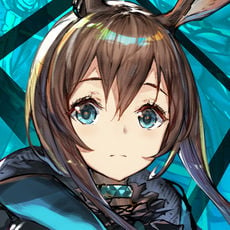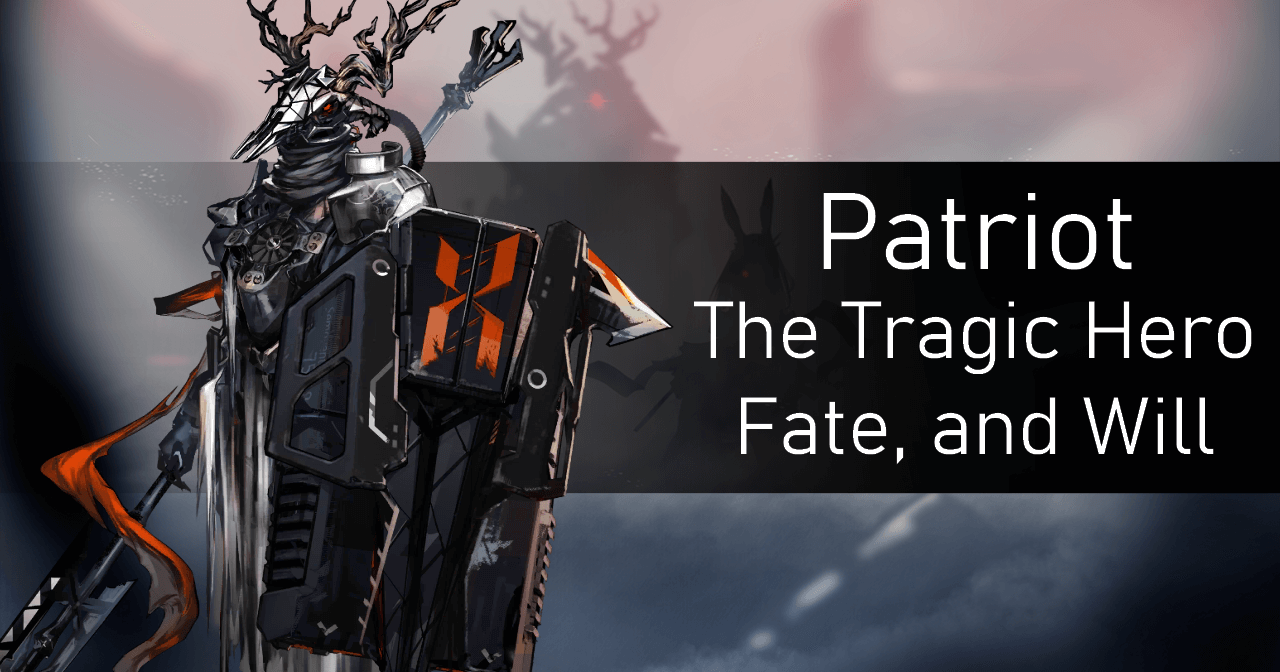Patriot: the Tragic Hero, Fate, and Will
I rarely offer my advice to others, Doctor.
But that is “Patriot,” Buldrokkas'tee.
We finally come face to face with Buldrokkas'tee. Patriot. The aegis of the Infected. The nightmare on the northern tundra. Two hundred years of hardship, suffering, and torment all shoved onto one man. He won't surrender, nor will he take a single step back. If fate stands in his way, he will trample over it. Since I believe Patriot is one of the most well-written characters in Arknights, I do want a spend a little time talking about this old, stubborn Wendigo.
"Rhodes Island, I advance."
As it usually goes for fiction, this will only be my own interpretation of Patriot's character, meaning that you're welcomed to agree or disagree. In addition, there will be spoilers to the end of Chapter 7.
Let's begin.
The Tragic Hero
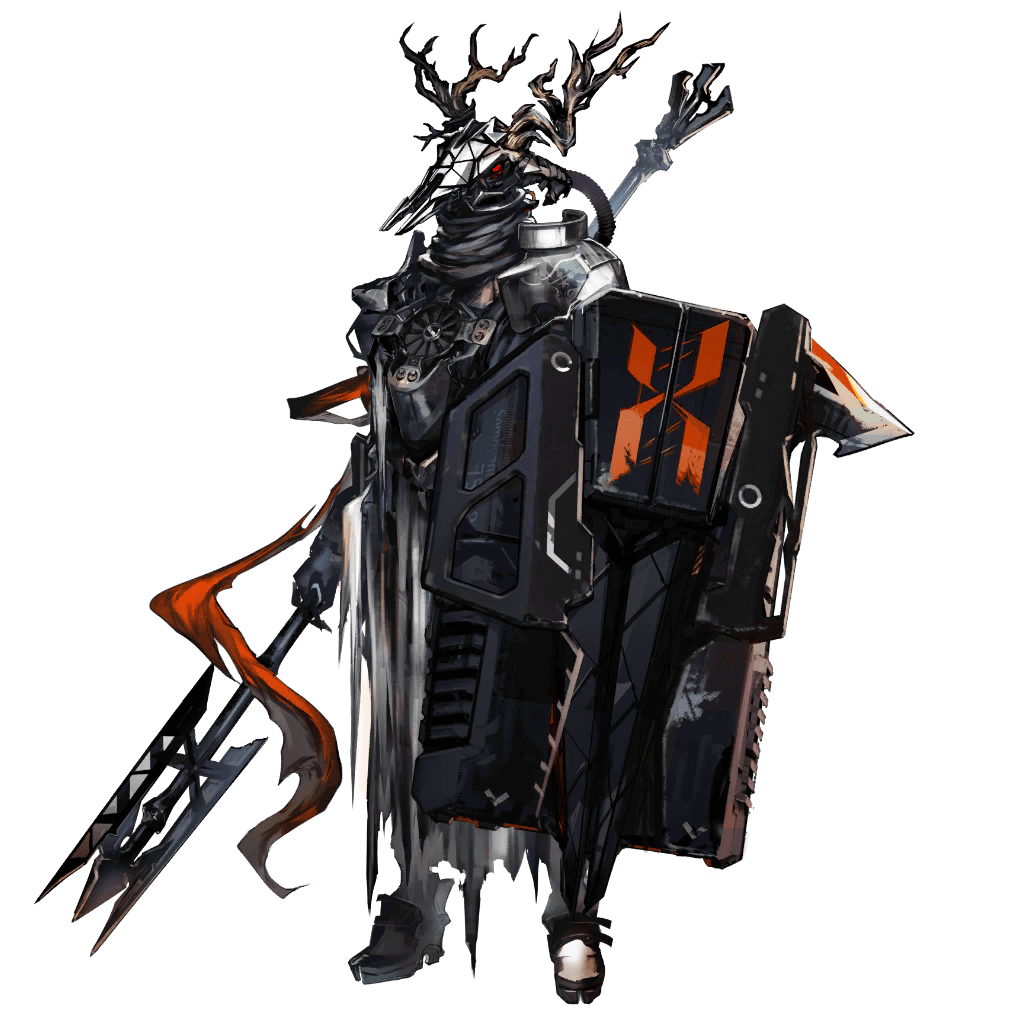
Although we faced Patriot as an enemy, he was, without doubt, a hero to the countless Infected on Ursus' tundra. It was he who first led his Shieldguards to liberate the Infected from the labour camps, long before Reunion became recognized. Ironically, despite betraying the Ursus Empire, he was given the name "Patriot." People followed him, believed in him, and would gladly lay down their lives for him. Yet there is no doubt that Patriot's story, as noble as it may be, was that of a tragedy.
A tragic hero, as you may have guessed, is the protagonist of a tragedy. The Greek philosopher Aristotle first defined the tragic hero as someone whose own actions lead to their downfall. A tragic hero should remain "good", and their misfortune, a product of their flaw (hamartia), should elicit pity from the audience, for that same fate may befall on them were they in the hero's shoes.
To uncover what led Patriot down this path, we must first start with another quality of his: the belief he has in himself.
...But I loathe fate.
I will fell it, crush it, grind it to dust.
If fate, lets you, make me turn.
I would rather, never turn, back.
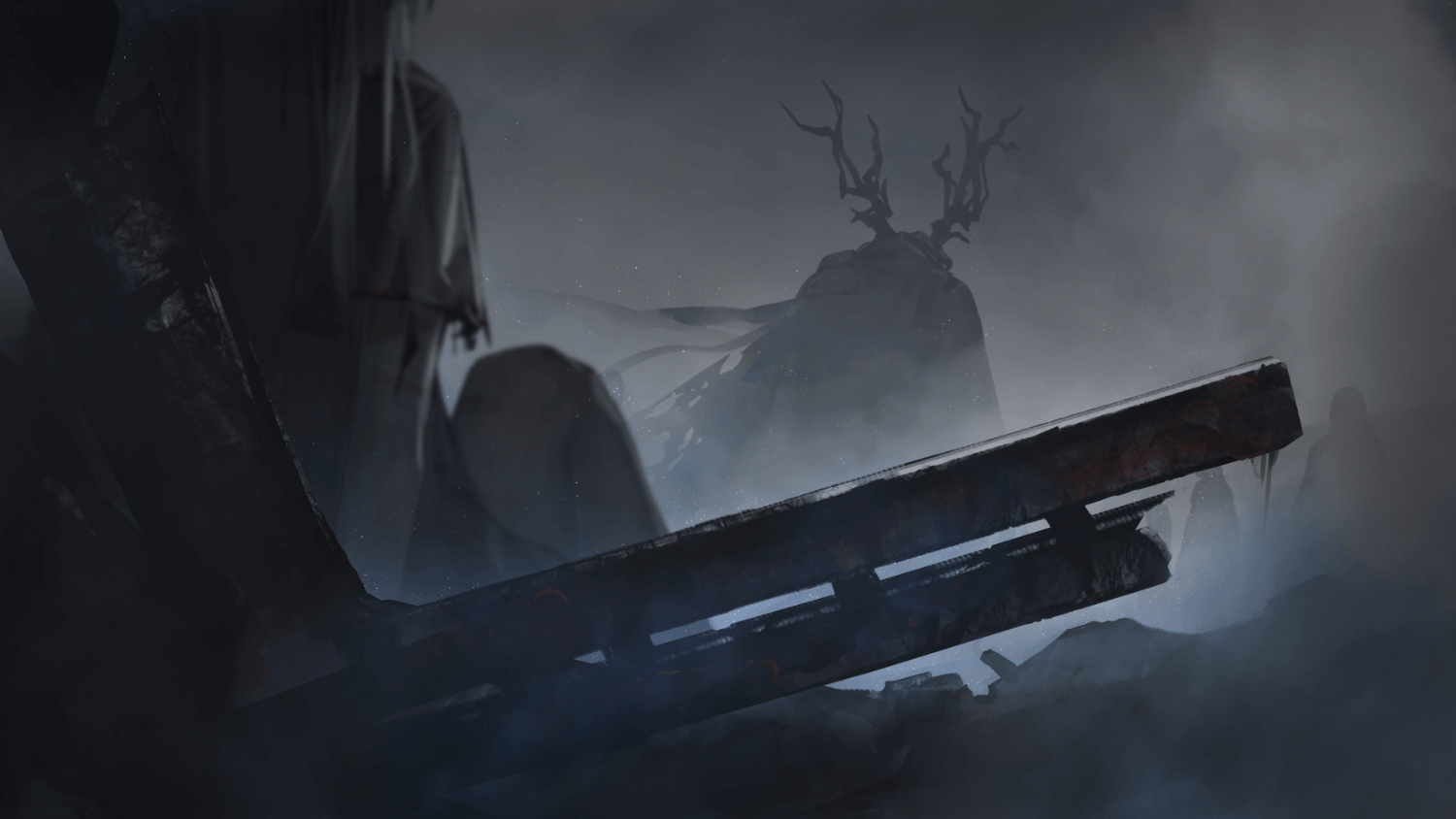
Believing in oneself means believing in one's own choices, and Patriot's life was defined by his struggle against fate. He became a Wendigo who refused to cannibalize. A Sarkaz who detested killing. An Infected who fought for Ursus. And finally, Patriot, a leader who fought against his own empire. His following of a certain organization or nation, his "loyalty", was determined by if he agreed with their methods. When Hellagur asked Patriot in Operational Intelligence if the wars waged by Ursus were just, the old Wendigo replied, "Naturally. Our war, is righteous. If not, the countless sacrifices. Were in vain." He claimed to fight for justice, which he said eternally belonged to Ursus. If he believed that the empire is in the way of his justice, he would rise against it.
Yet Patriot was also stubborn. He believed in himself and only himself, and it seemed like he refused to acknowledge that he had gone too far until it was too late. He continued to fight for the empire despite becoming infected, and his son died at the hands of the soldiers he led. He continued to fight for Reunion despite knowing about Talulah's change, and Reunion was split apart by Talulah's betrayal.
Stubborn, like an old man who had seen 200 years worth of war.
However, his reasons for persisting in his choice was far more than simply stubbornness.
The war ends. If it, truly, ends. We should, all die.
But war never ends.
But I will die.
But, for my death, I want, meaning. I want to see, for Ursus, for the Infected, another future.
Patriot may be stubborn but he wasn't blind. He knew that the empire was hunting down the Infected, and he should've gone against the empire to fight for Infected rights as his son did. Yet were he to do so, his son would be implicated, and so would the rest of his soldiers. He was old and sick with Oripathy. Wendigos, as long-lived as they may be, would still eventually die. His son was still young, and if he wished for a future for the Infected, his son could accomplish much more than he could.
He made a choice against his morals, hiding his Oripathy and remaining in the Ursus military, believing that it would lead to the best outcome for everyone involved. But the empire gave the order, and he found his son dead.
He turned his back to the empire and left for the northern tundra, but he was not alone to shoulder the weight of his choice. His soldiers followed him, becoming the guerrillas, becoming the aegis of the Infected. His son fought for the Infected with his knowledge and intellect; he fought for the Infected with his own two hands.
Then, he met Talulah.
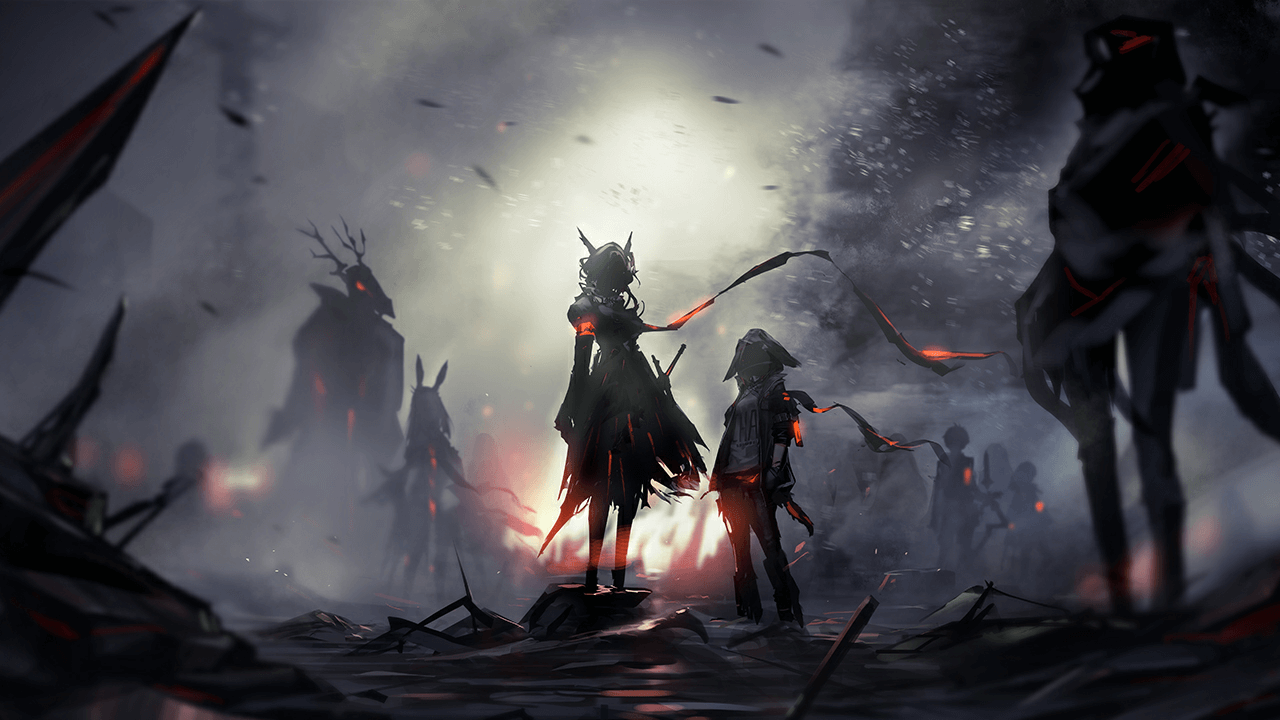
He found new hope for the Infected in Reunion, but in turn, Reunion chained him down. He became the bolt that held this chaotic organization together. When Talulah began to trample on the cause that Patriot believed in, as the Ursus Empire did many years prior, he had already sunk too deep. He could not let Reunion, the hope of the Infected, crumble away because of a conspirator's machinations.
Perhaps by the hands of fate, he finally met Rhodes Island. But now, for Patriot, he only had one choice.
We all know, Dame. We all know. Things in this world, do not happen, because they are, right.
In fact, most things, are mistakes, again.
My men said, I can fix them. In fact, they are too many. There is no, looking back.
All of this, in the end, forms the central conflict of Buldrokkas'tee's character.
Throughout his entire life, he had been trying to atone.
He believed in only himself. He cared not for others' admiration or disdain, or the meaningless titles like "Patriot" that was forced upon him. "Why should I stop? Who dares, test me? My virtue? They called me, righteous. Should I, accept? Fate thinks me weak. Do I suffer it? They called me strong. Should I bear it?" He believed that no one had the right to judge him. Only Buldrokkas'tee could judge Buldrokkas'tee.
And just like that, if he believed that he was wrong, he would atone for it, even if it would cost him the rest of his life.
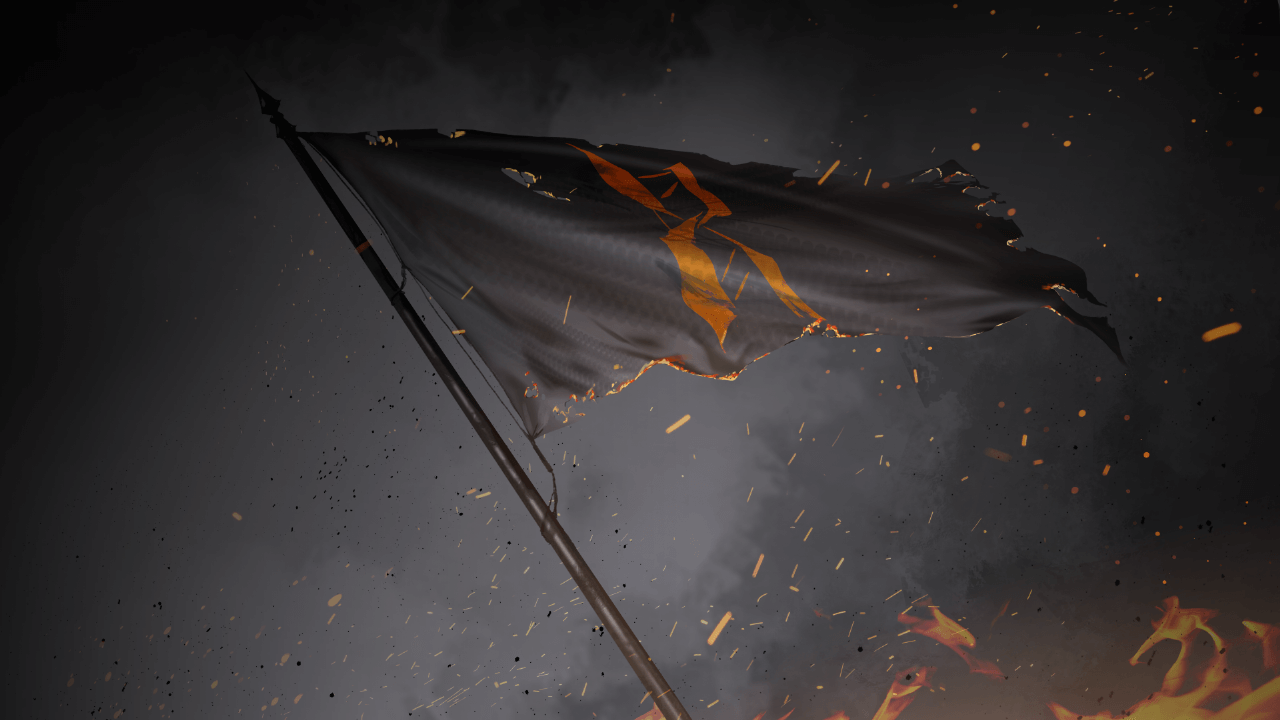
Despite his accomplishments, at the core of Patriot was a man who lost his wife, son, and all that he had fought for because of his choices. He called himself undeserving of his wife's love, and an unworthy father to his son and adopted daughter. The more strongly he believed in his own choices, the harder and more painful it was when they led him deeper and deeper into the abyss. And the most tragic part of it is that no one can say if his decisions were right or wrong. He was not clairvoyant, and he had no ill intentions. If there was anything that should be at fault, then I suppose it could only be fate.
But Patriot hated fate, and never once did he try to excuse his actions.
He had the chance for an "honorable betrayal" by joining forces with Rhodes Island, but Patriot couldn't allow himself to do that. He had to atone, no matter whether it was through overthrowing Talulah or through his death. He became angered when Amiya tried to ease his passing with illusions. By his creed, he deserved to suffer.
My end, is not, someone else’s, to give!
A vision? No! That is not my end!
If it is tragic, then it is tragic. If foolish, then foolish!
This is, my end. The end... I deserve.
He didn't wish for comfort.
He knew he wasn't worthy of it.
Fate
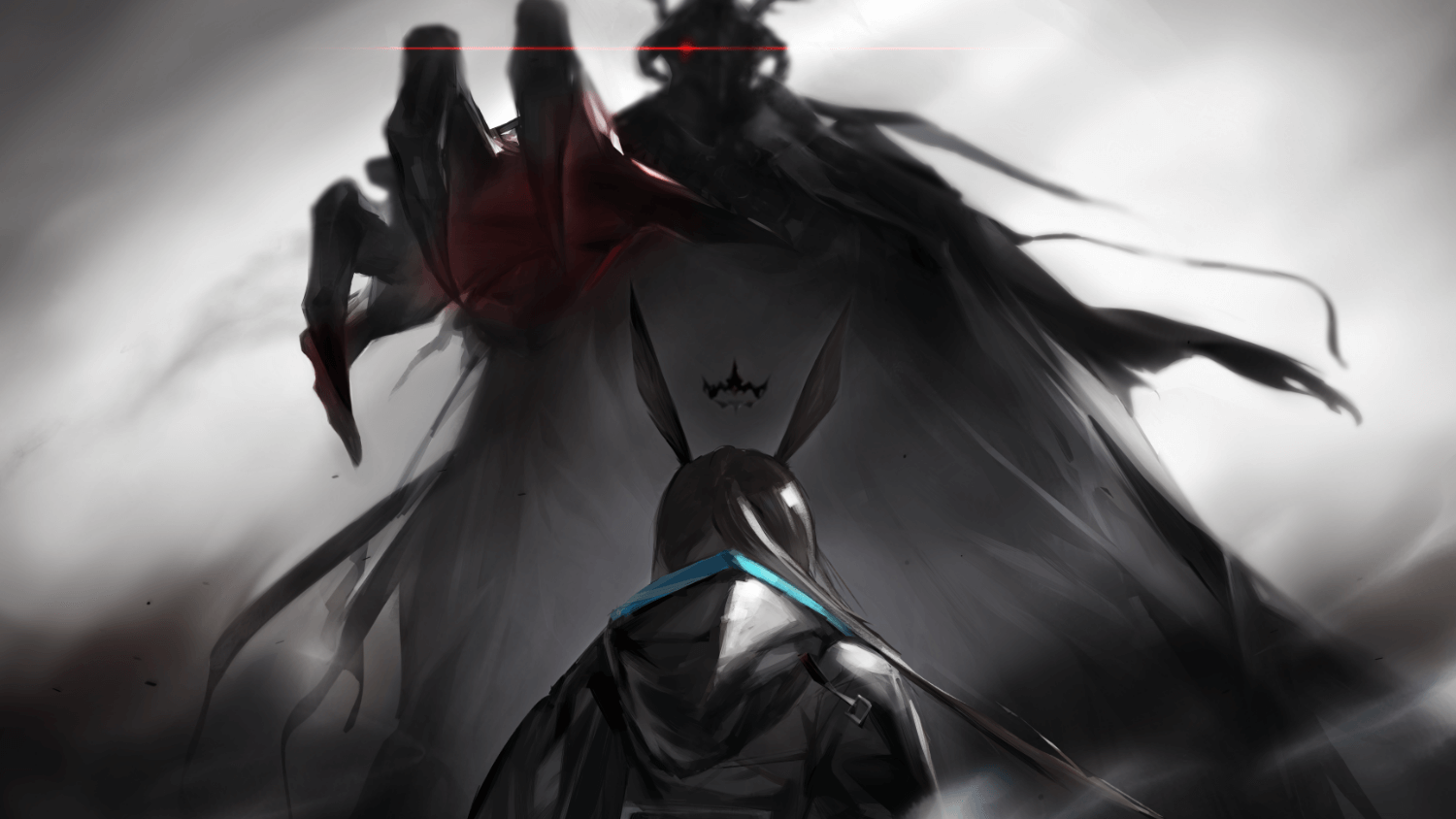
Fate wasn't kind to Buldrokkas'tee. Every choice, every coincidence, brought only more pain and suffering. Fate had been cruel, and Patriot became everything that he did not want to become. He hated fate, for it was unjust, taking the lives of those who had done no wrongs. Even his daughter, whom he wished wouldn't become someone who kills others, still inevitably walked the same path as he did. Rather than becoming fixated on whether a choice was right, both Frostnova and Patriot emphasized making a choice and sticking through with it, no matter the outcome. "Even so, even if the outcome makes no difference.... I do want to choose for myself. I made my choice. With my own hands.... To take the fruit of the seeds I have sown."
When we think of fate, we think of it as something that's "set in stone" or "concrete", and our decisions will always lead us down this predetermined path. This idea of fate, or fatalism to be more specific, comes in many different forms, but the basis is that humans are powerless to change the outcomes of their actions and future.
Throughout history, many philosophers have argued for or against the existence of fate. There was Friedrich Nietzsche, an influential German philosopher who criticized Judeo-Christian morality as he didn't believe that free will, which these morals were based upon, exists. There was Gottfried Wilhelm Leibniz, a German polymath and philosopher, and although his works contained a degree of determinism (the idea that prior events determine current actions), he also wrote that since a person's cause for action comes from themselves, they are free. There is also John Martin Fischer, an American philosopher who says that although people do not have free will, they are still morally responsible for their actions.
Yet on Terra, the concept of fate seems like a readily-believed subject. We have the prophecies, after all, and we also have evidence that deities exist, such as the deity of Karlan and the religion of Laterano. While it's curious to think about how life might be with deities involved, it's also a bit concerning when prophecies come into play, and it begs the question if there is free will, or if one's actions are futile, when the outcome is already predetermined.
Patriot, obviously, didn't believe that fate had a grip on his life. Nevertheless, he still acknowledged that fate was what caused the suffering of this land, that fate was what birthed tragedy. But like a sick joke, at the end of his long life, fate manifested itself in its purest form: a prophecy.
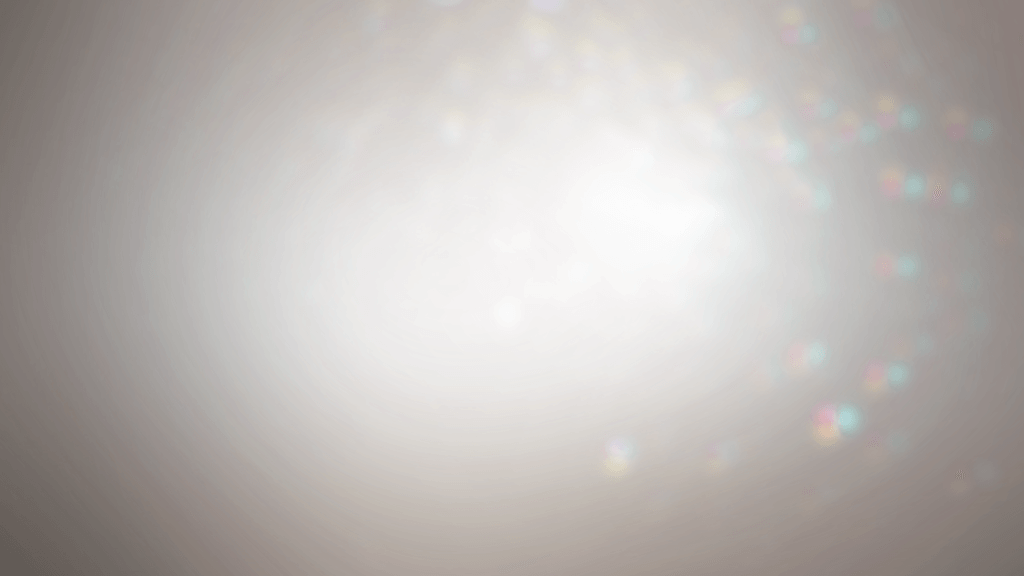
—You. Cautus. It’s you.
You, are her... successor.
Theresis, lied. The King... had a... successor.
You are... the Lord of Fiends.
I see cities, devastated.
I see Originium, blanketing the land.
I see you, black crown on your head, melting millions of lives, into nothing but memories.
I see the, King of Sarkaz, enslaving all peoples, everywhere.
The combination of the prophecy, hallucinations, and Amiya challenged his core beliefs, and for a moment, Patriot was shaken. For someone who had been seeking atonement all his life, this was the perfect opportunity to make up for all of his mistakes. A Sarkaz could become a hero by killing the Sarkaz King.
In that moment, Patriot believed the prophecy. The greatest evil of this world was right before his eyes. He must destroy it.
I cannot, let you live.
You can hate me.
And so, he reached out his hand.
Will
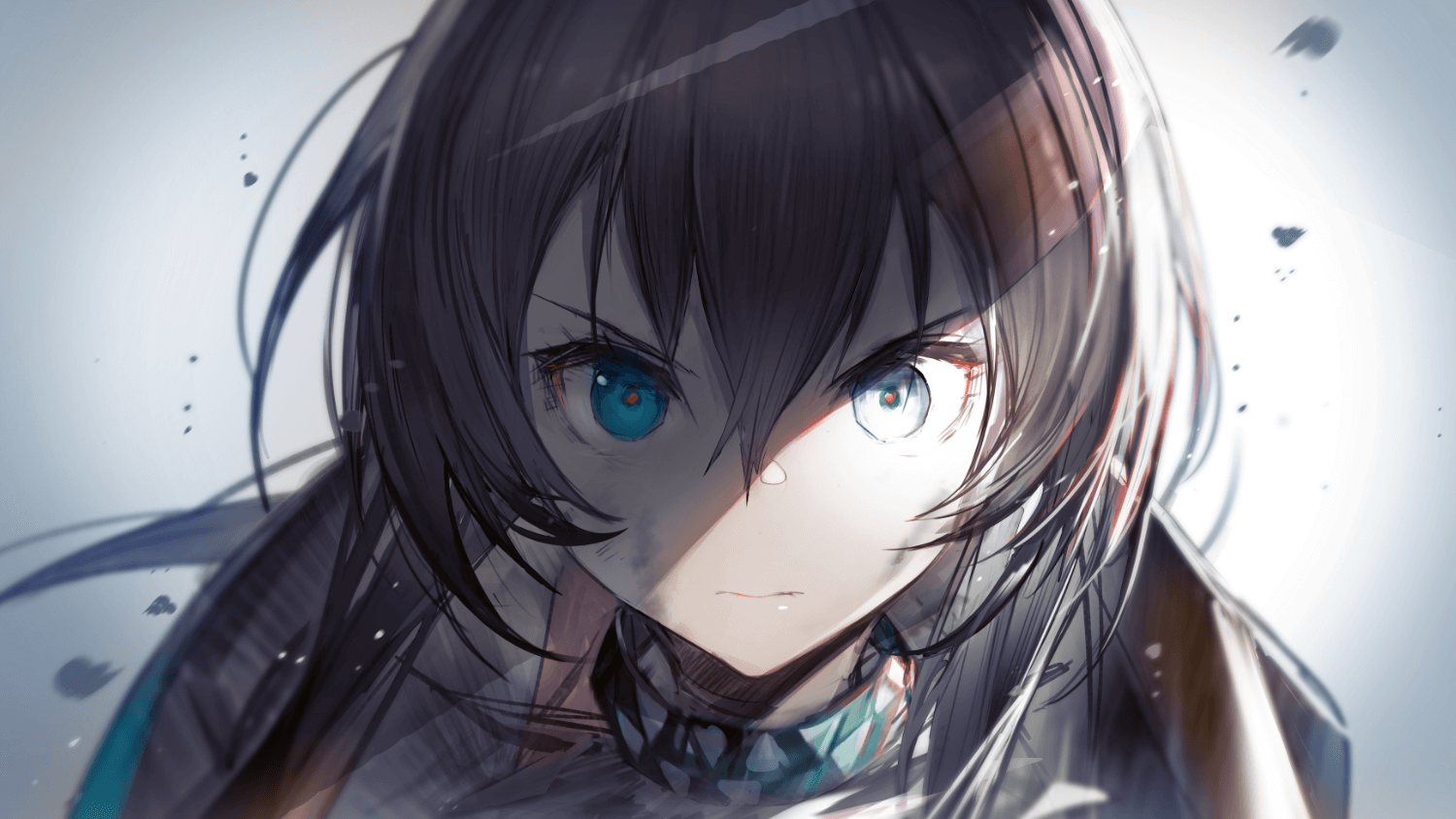
Just as Patriot is about to crush the skull of the girl in black...
The Wendigo freezes in place.
Something appears to be dripping sorrowfully from his helmet.
......
A minute passes.
During this eternity of a minute, there are no other sounds except for the low rumbling of the moving city.
Then, the realization dawns. The monster standing before us is dead.
Having never taken a single step backward, unwavering for even a single second, in the end, death put a stop to the Patriot’s lifelong advance.
In the end, Patriot didn't close his hand. He allowed Amiya to live, and died by the Sarkaz King's hands.
He saw through fate's tricks, in that if he had killed Amiya, it would mean that he fully believed in the prophecy, and by extension, fate. Just like how he chose to trust Frostnova many years ago despite knowing that Talulah was Duke Kashchey's successor, and despite Talulah ended up becoming the evil he said she would become, he chose to believe that Amiya would not become the evil Sarkaz King in the prophecy. His "acceptance" was, in truth, a defiance.
He died in anger for the unfairness of fate. Those who should not have died were buried, those who should not have suffered were miserable, and now a child must bear the title of the Sarkaz King. But if we take matters into our own hands, if there is a will, there is a way.
Even if, every time, fate brings me, to the same... end...
I would rather, wrestle it, until again, the sun rises."
Fate could take his life, but it couldn't force him to bow. He betrayed Kazdel, he betrayed Ursus, he betrayed Reunion, but he never betrayed himself.
“I have seen. Woe and tragedy.”
“I have seen. Death and carnage.”
“I have seen. Neglect and blasphemy.”
“But someone once told me. It is all in our hands. If in the future, this is all that awaits us...”
“O, little King of Sarkaz. It is all in our hands. If this is fate...”
“Then I reject it.”
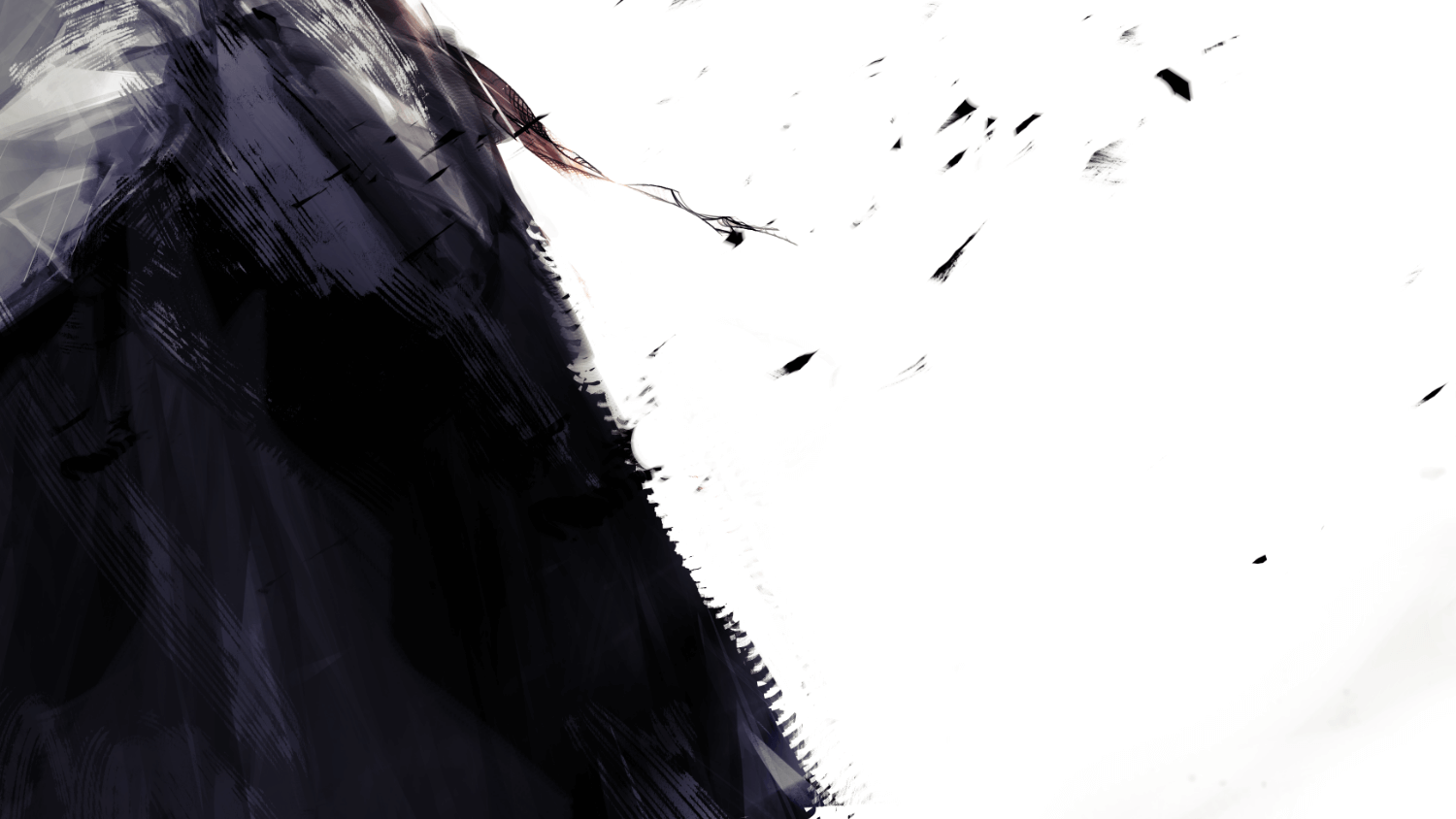
Closing
He said... He asked...
He sighed...
“My Lord... Where will you go?”
Patriot was just one man. He had emotions like the rest of us do, and he would shed tears for the suffering of others. He shouldered the weight of his rights and wrongs, and although he never needed or wanted consolation from others, I hope that, at the end of his life, he could find peace in knowing that he defeated fate.
Farewell, Buldrokkas'tee.

